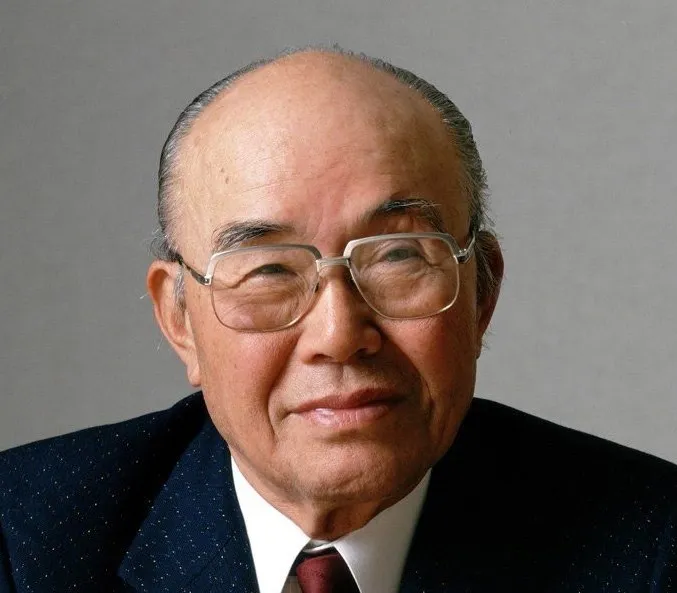
Soichiro Honda: The Visionary behind Honda's Automotive Legacy
Soichiro Honda, a name synonymous with innovation, determination, and entrepreneurial spirit, is an iconic figure in the world of automotive engineering and business. Born on November 17, 1906, in a rural Japanese village, Honda's journey from a humble beginning to establishing one of the most renowned automobile companies in the world is a remarkable tale of perseverance and ingenuity. This article delves into the life, achievements, and enduring legacy of the man who revolutionized the automotive industry with his pioneering ideas and unwavering commitment to excellence.
Early Life and Passion for Machinery
Growing up in the small town of Komyo in Japan's Shizuoka Prefecture, Soichiro Honda showed an early fascination with machines and mechanical devices. He was especially drawn to bicycles, motorcycles, and automobiles that he encountered in his village, captivating his young mind with their mechanics and engineering. From a young age, Honda exhibited a keen sense of curiosity and a desire to understand how things worked, often disassembling and reassembling objects to gain insights into their inner workings. At the age of 15, Honda left school to work as a mechanic's apprentice in Tokyo. During this time, he honed his technical skills, and his passion for engines and automobiles only grew stronger. This practical experience laid the foundation for his future endeavors, setting him on a path towards greatness.
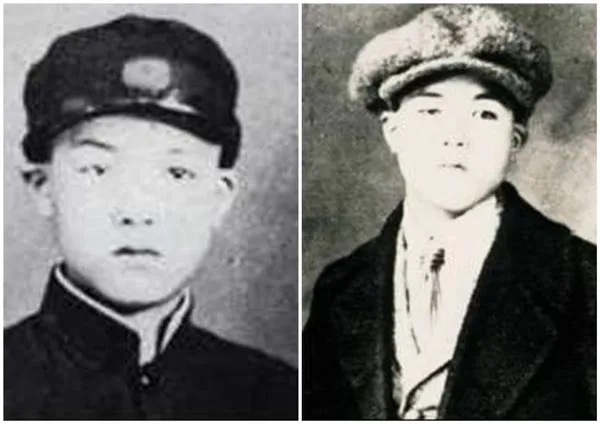
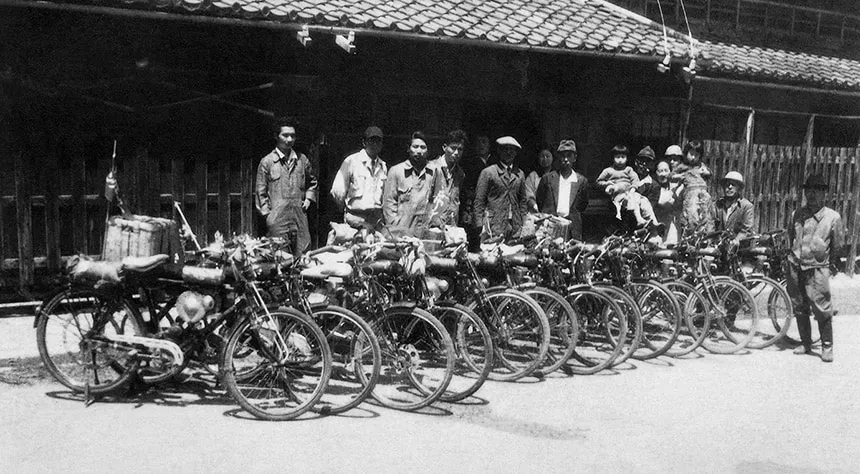
The Rise of Honda Motor Co.
In 1937, Soichiro Honda established the Tokai Seiki Heavy Industry company, where he worked on developing piston rings. However, this venture faced numerous challenges, and in the wake of World War II, Honda's factory was destroyed in a bombing raid. Despite this devastating setback, Honda remained undeterred and continued to work on his vision of building motorcycles. In the post-war era, Japan faced an increasing demand for affordable transportation. Recognizing this need, Honda set out to create an economical and reliable motorcycle. Drawing inspiration from a simple generator engine, he designed and produced his first prototype motorcycle engine, which he attached to a bicycle frame. This innovation marked the inception of the Honda Motor Company in 1948.
The Honda Super Cub Revolution.
Honda's breakthrough moment came in 1958 when he introduced the Honda Super Cub, a small, inexpensive, and easy-to-handle motorcycle. The Super Cub's design was based on the concept of "three joys" - the joy of riding, the joy of maintenance, and the joy of ownership. This approach struck a chord with consumers, and the Super Cub became an instant success. Its practicality, fuel efficiency, and affordability made it accessible to a wide range of consumers, from urban commuters to rural farmers. The Super Cub revolutionized the motorcycle industry and became one of the best-selling motor vehicles in history, securing Honda's position as a major player in the global automotive market.
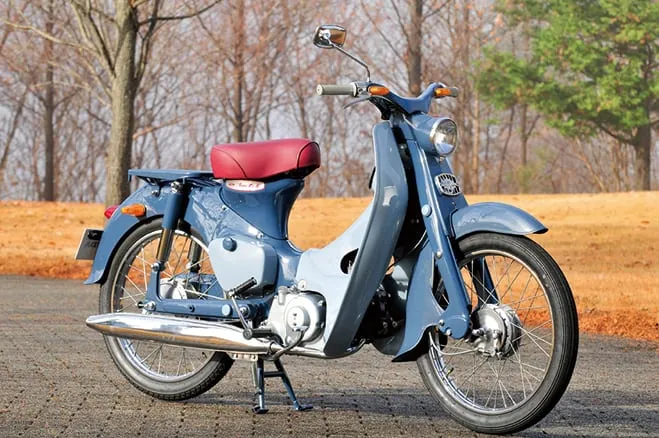
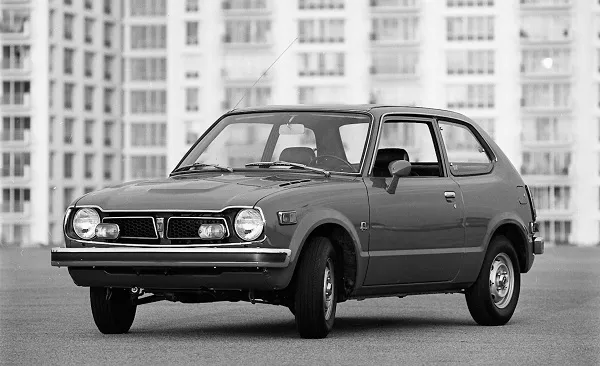
Expanding the Horizon.
As Honda Motor Co. gained traction, Soichiro Honda's ambition knew no bounds. He envisioned a company that would produce not only motorcycles but also a wide range of innovative products. Under his leadership, Honda diversified its offerings, venturing into the production of automobiles, power equipment, marine engines, and even aircraft. In 1963, Honda launched its first four-wheeled vehicle, the T360 mini-truck, and soon after, the S500 sports car. These endeavors marked Honda's entry into the automotive sector and set the stage for further expansion. The Honda Civic, introduced in 1972, became another significant milestone for the company. With its fuel efficiency and reliability, the Civic captured the hearts of consumers worldwide, solidifying Honda's reputation for producing practical and well-engineered vehicles.
Challenges and Resilience.
Throughout his career, Soichiro Honda faced numerous challenges, both professionally and personally. His relentless pursuit of perfection led to some setbacks and product recalls, but he viewed these hurdles as opportunities to learn and improve. Honda's hands-on approach to engineering meant that he would often work alongside his team, testing and refining his designs personally. This approach created a culture of innovation and continuous improvement within the company. Honda's leadership style was unconventional and marked by a lack of hierarchy. He encouraged open communication, allowing employees at all levels to contribute their ideas and opinions. This approach fostered a sense of ownership and loyalty among the workforce.
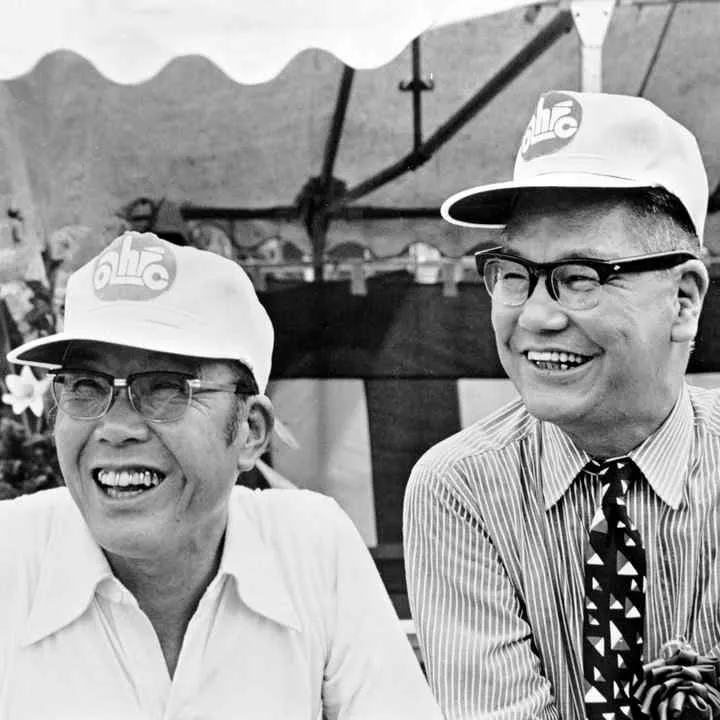
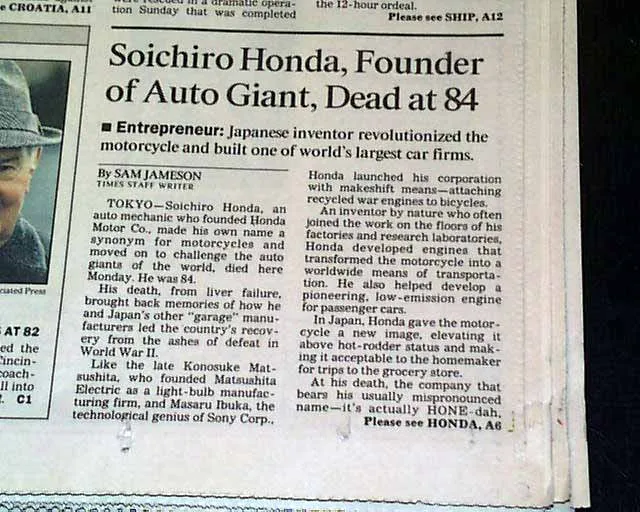
The Enduring Legacy.
Soichiro Honda's indomitable spirit and passion for innovation have left an indelible mark on the automotive industry. His commitment to quality, efficiency, and user satisfaction laid the groundwork for Honda's success. Even after his passing on August 5, 1991, Honda Motor Co. continues to be a global leader in the automotive market, producing a diverse range of vehicles known for their reliability and performance. Beyond his contributions to the automotive world, Honda's legacy extends to various charitable and philanthropic endeavors. The Honda Foundation, established in 1977, supports environmental conservation and scientific research to contribute positively to society.
Conclusion.
Soichiro Honda's life and achievements embody the very essence of the human spirit's potential for greatness. From his humble beginnings in a rural village to the establishment of a global automotive giant, Honda's journey is a testament to the power of determination, creativity, and perseverance. His innovative approach to engineering and business, coupled with a deep commitment to customer satisfaction, continue to shape the Honda Motor Company's values and ethos to this day. As we celebrate Honda's remarkable legacy, we are reminded that the pursuit of excellence, no matter the obstacles, can lead to enduring success and leave a lasting impact on the world.
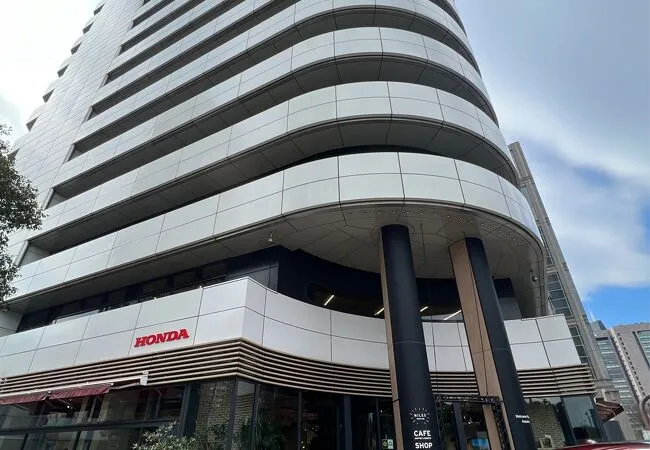
eXus Dev 2.8.2023







































